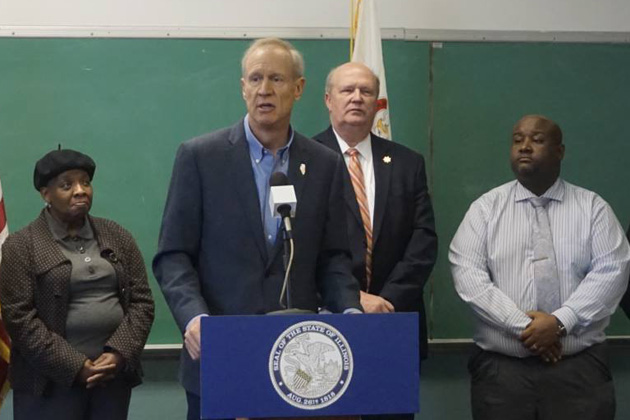
By Greg Bishop/Illinois Radio Network
SPRINGFIELD – The Illinois Department of Corrections is doing something Gov. Bruce Rauner said should have been done well before he took office — training corrections staff to better handle behavioral health issues.
The state settled a nearly-decade-old case, now named Rasho v. Baldwin, in May, a case that was related to the poor treatment of mentally ill inmates at Illinois correctional facilities.
Even before that settlement was issued, however, IDOC Director John Baldwin said the department began training corrections staff on how to handle behavioral health issues.
“Mental health is a huge issue facing every corrections system in America. It is the source of a lot of issues between staff and offenders, and we need to make sure staff are fully trained,” Baldwin said.
Nearly 13,000 corrections staff have participated in two-day mental illness awareness training since January, the department said.
Baldwin said more is on the way next year.
“We are rolling out five or six more courses, some of them specifically tailored for behavioral health and mental health.”
“We need to increase the toolkit of every single employee,” Baldwin said.
Rauner said the training is the right thing to do “so they can recognize it, they can communicate with offenders who are suffering from mental illness, they can recognize the symptoms to understand the treatments and how to interact when there’s an episode.”
The focus isn’t just about ensuring inmates are safe, but also ensuring corrections staff are safe too.
Baldwin hopes to launch the Desert Waters program next year to focus on the health of corrections staff who deal with very stressful issues.
“It helps staff identify what stress is, how to handle it, what coping skills are.”
Baldwin said IDOC is in talks with the American Federation of State, County and Municipal Employees union about the program.
Corrections officials say nearly 27 percent of Illinois’ total prison population have some kind of behavioral health issue. Of that, men make up 25 percent while women make up 58 percent.
Of the total population, around 10 percent have a severe mental illness.
Rauner said with more mental health awareness training, he expects those number to increase.






